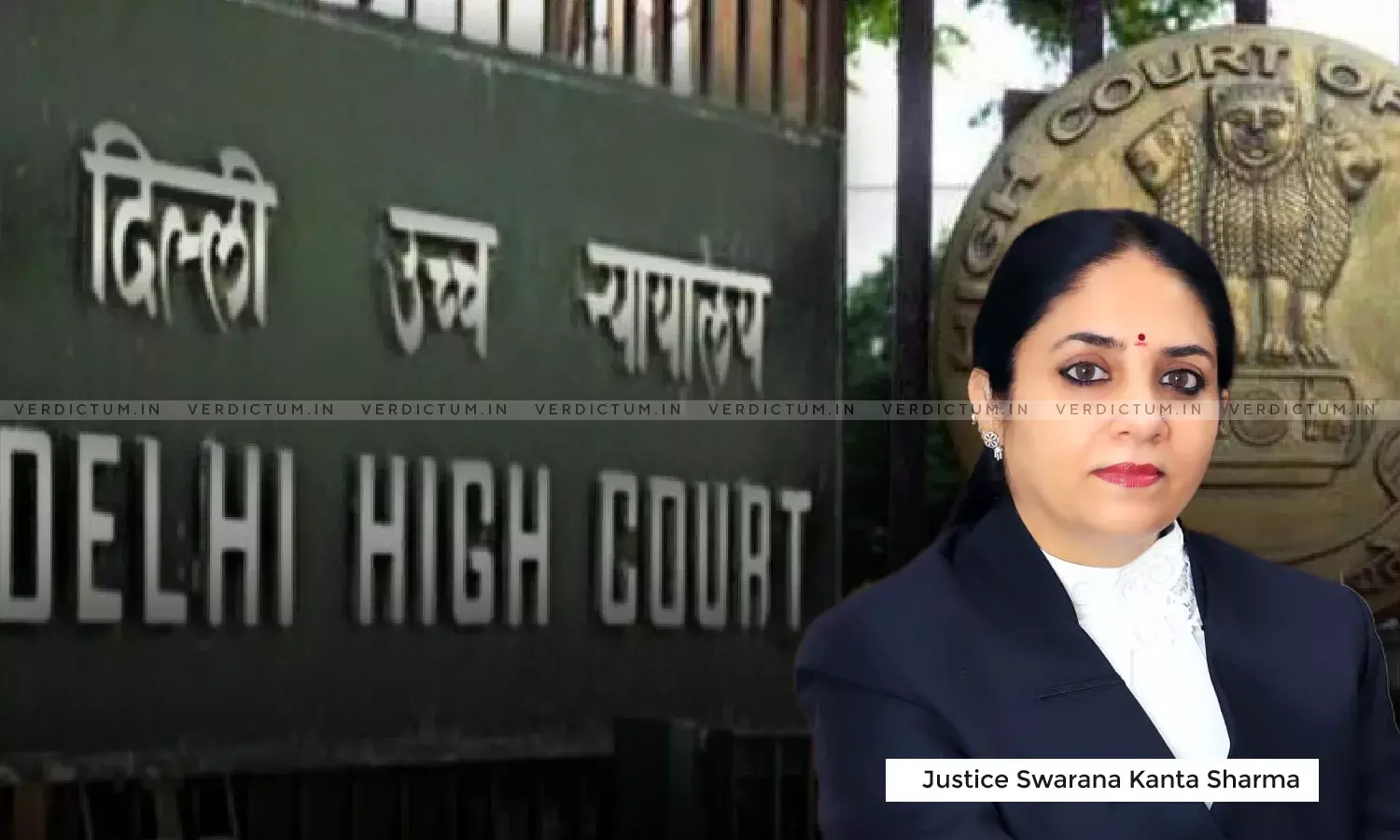Gender-Based Presumptions Without Substantial Basis Is Against Core Principles Of Justice System: Delhi HC Reverses Discharge Of 'Lady Accused'

Justice Swarana Kanta Sharma, Delhi High Court
The Delhi High Court held that gender-based presumptions, without any substantial basis or valid grounds go against the core principles of the Justice System. The Court emphasized that the justice system is based on an objective assessment of facts rather than preconceived notions.
The Court partly set aside the order of the Trial Court, whereby the female accused were discharged but the male accused were charged with the offences of kidnapping, physical assault and attempted murder. The Court asserted that each person's involvement in a criminal act must be assessed independently, based on the statements recorded and evidence collected by the prosecution and placed on record before the Court for consideration.
Justice Swarana Kanta Sharma observed, “Such an assumption in favour of a female accused, lacking any substantive basis or valid grounds, goes against the core principles of our justice system, which is predicated on the objective assessment of facts rather than preconceived notions. Our legal system is founded on the principle of gender neutrality, unless otherwise provided, where each individual, regardless of their gender, is held accountable for their actions in accordance with the law. Presumptions based on gender have no place within this framework, unless provided by law, as they undermine the pursuit of truth and justice”.
Additional Public Prosecutor Manoj Pant appeared on behalf of the Petitioner and the Respondents appeared in person.
The Complainant’s uncles and paternal grandfather were in judicial custody for the murder of one Satpal. One day, the deceased's family (Satpal) allegedly confronted the complainant and physically assaulted him after forcefully transporting him. The male members of Deceased’s family hit the complainant, stabbed him and inflicted injuries to his head. Meanwhile, female relatives of the accused persons arrived at the spot and started instigating the male accused persons to kill the complainant, seeking revenge for the murder of Satpal. They allegedly fired a pistol into the air, after which someone contacted the police, and the complainant was taken to the hospital. The Police Officials found bloodstains, drag marks, an empty cartridge, and a bullet at the spot of the incident. They filed the chargesheet against all the accused persons under Sections 147, 148, 149, 323, 341, 307, 365 and 114 of the Indian Penal Code (IPC).
The Trial Court framed charges against the male accused but discharged the female accused on the ground that there was no evidence against the female accused persons of instigating the male accused persons as they were already armed with different weapons.
A Criminal Revision Petition was filed on behalf of the Petitioner/State under Sections 397 and 401 of the Criminal Procedure Code (CrPC) challenging the order of the Trial Court, whereby the female accused were discharged without any substantial basis.
The Court noted that the trial court's role at the charge framing stage is limited and guided by Section 228 of the CrPC. The Court observed that, at the charge framing stage, the court's primary task is to determine whether there is a prima facie case against the accused based on the evidence presented by the prosecution. The Court held that, at this stage, the court cannot assess whether the case has been proven beyond a reasonable doubt.
“The Courts cannot rely on unsubstantiated assumptions or presumptions in the absence of legislated assumptions or presumptions applicable under any specific Section of law. The role of Trial Court at the stage of framing of charge is limited and has to be guided by Section 228 of Cr.P.C. and the judicial precedents including the ones which have been mentioned in the preceding paragraphs. At the stage of framing of charge, the Court's primary task is to ascertain whether a prima facie case exists against the accused on the basis of material placed on record by the prosecution”, the Court noted.
This Court noted that the Trial Court distinguished between the “male accused persons” and the “female accused persons”. The Court observed that this assumption in favour of the female accused, which lacks any substantive basis or valid grounds, goes against the core principles of the justice system. The Court held that the Justice System is based on the objective assessment of facts rather than preconceived notions. The Court noted that the legal system is founded on the principle of gender neutrality, unless otherwise provided, where each individual, regardless of their gender, is held accountable for their actions in accordance with the law.
Accordingly, the Court partly set aside the order related to the discharge of the female accused and disposed of the Petition.
Cause Title: The State Govt of NCT of Delhi v Babita & Ors

